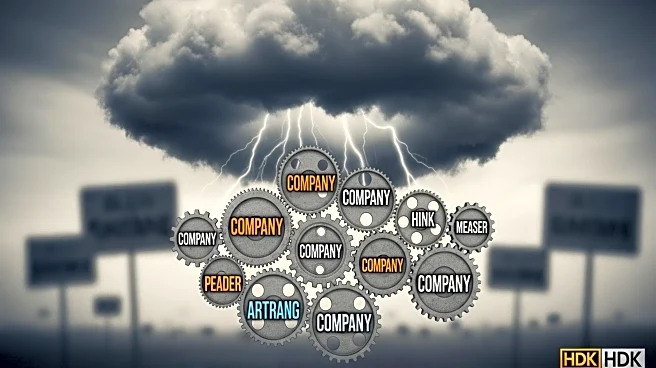What's Happening?
The U.S. Department of Agriculture (USDA) is encountering challenges in its efforts to expand its Stratus cloud contract. As part of the process to onboard more companies to pool two of the basic ordering agreement, the USDA conducted a selection process that resulted in the elimination of several companies from the competition. This has led to dissatisfaction among the affected companies, with nine of them filing protests at the Government Accountability Office (GAO). These protests were filed between September 15 and 16, 2025. The Stratus pool two covers integration and development services, including managed services such as governance, cloud strategy, platform architecture, change management, training, operations and maintenance, and security. The GAO is expected to make a ruling on these protests between December 24 and 26, 2025.
Why It's Important?
The protests against the USDA's Stratus cloud on-ramp process highlight the competitive nature of federal contracts and the significant opportunities they represent for companies in the technology sector. The Stratus contract, which has no ceiling value, suggests a substantial business opportunity for companies providing cloud services. The outcome of these protests could impact the distribution of federal contracts and influence the strategies of companies seeking to engage in government projects. Additionally, the resolution of these protests may affect the USDA's ability to implement its cloud strategy effectively, potentially impacting its operations and service delivery.
What's Next?
The GAO's decision on the protests will be crucial in determining the next steps for the USDA's Stratus cloud contract. If the protests are upheld, the USDA may need to revisit its selection process, potentially delaying the onboarding of new companies and affecting its cloud service plans. Companies involved in the protests will be closely monitoring the GAO's ruling, as it could influence their future participation in federal contracts. The USDA may also need to address any procedural issues identified during the protest process to ensure a fair and transparent selection process in the future.








